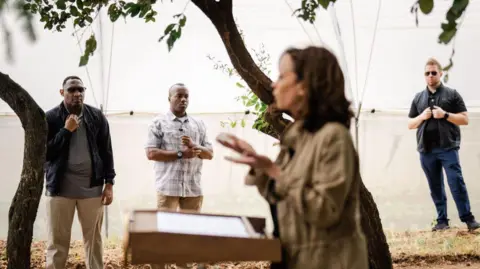The plight of Wikie and her son Keijo, two orcas stranded in a southern France marine facility, continues to capture public attention as Marineland Antibes employs unconventional measures to manage their breeding. Following the zoo's closure in January, the future of the pair remains unresolved, as authorities and animal rights groups struggle to reach a consensus on appropriate rehoming strategies.
A recent report by the activist group TideBreakers revealed footage of trainers performing sexual stimulation on Keijo to mitigate potential inbreeding risks with his mother, Wikie. The action comes as the orcas are trapped in their pools, receiving care while awaiting a resolution to their relocation. Due to a new law prohibiting marine shows featuring orcas, Marineland's closure has left the two mammals in a precarious situation.
Eyewitness accounts suggest trainers are intervening as Keijo approaches adolescence, heightening his sexual urges. While Marineland management asserts this practice is natural and painless, experts like Valerie Greene, a former orca trainer, express discomfort with the situation, labeling it unusual and ethically troubling. Greene and others emphasize the growing health risks associated with the orcas remaining in captivity without a clear path to sanctuary.
The French ecology ministry has been informed of the situation, but their response has been largely passive. Recent attempts to secure new homes for the orcas in marine sanctuaries have faced numerous setbacks, leading to accusations of neglect from conservationists advocating for immediate action.
Two weeks ago, a social media communication from ecology minister Agnès Pannier-Runacher attempted to reassure the public about the animals' welfare amidst ongoing scrutiny. Yet, there are growing concerns about Marineland's care environment and whether it constitutes a safe space for the orcas.
Amidst these challenges, advocates such as Katheryn Wise from World Animal Protection highlight the necessity for a coordinated effort to expedite the rehoming process, stating that unnecessary delays are putting the orcas at risk.
As the situation remains unresolved, campaigners have suggested alternative temporary solutions, yet the urgency is palpable. Marketa Schusterova, co-founder of TideBreakers, warns that time is running out for Wikie and Keijo, urging for immediate intervention while advocating for sustainable practices for marine life in captivity. The international community watches closely, hoping for a humane resolution that prioritizes the wellbeing of these magnificent creatures.
A recent report by the activist group TideBreakers revealed footage of trainers performing sexual stimulation on Keijo to mitigate potential inbreeding risks with his mother, Wikie. The action comes as the orcas are trapped in their pools, receiving care while awaiting a resolution to their relocation. Due to a new law prohibiting marine shows featuring orcas, Marineland's closure has left the two mammals in a precarious situation.
Eyewitness accounts suggest trainers are intervening as Keijo approaches adolescence, heightening his sexual urges. While Marineland management asserts this practice is natural and painless, experts like Valerie Greene, a former orca trainer, express discomfort with the situation, labeling it unusual and ethically troubling. Greene and others emphasize the growing health risks associated with the orcas remaining in captivity without a clear path to sanctuary.
The French ecology ministry has been informed of the situation, but their response has been largely passive. Recent attempts to secure new homes for the orcas in marine sanctuaries have faced numerous setbacks, leading to accusations of neglect from conservationists advocating for immediate action.
Two weeks ago, a social media communication from ecology minister Agnès Pannier-Runacher attempted to reassure the public about the animals' welfare amidst ongoing scrutiny. Yet, there are growing concerns about Marineland's care environment and whether it constitutes a safe space for the orcas.
Amidst these challenges, advocates such as Katheryn Wise from World Animal Protection highlight the necessity for a coordinated effort to expedite the rehoming process, stating that unnecessary delays are putting the orcas at risk.
As the situation remains unresolved, campaigners have suggested alternative temporary solutions, yet the urgency is palpable. Marketa Schusterova, co-founder of TideBreakers, warns that time is running out for Wikie and Keijo, urging for immediate intervention while advocating for sustainable practices for marine life in captivity. The international community watches closely, hoping for a humane resolution that prioritizes the wellbeing of these magnificent creatures.





















